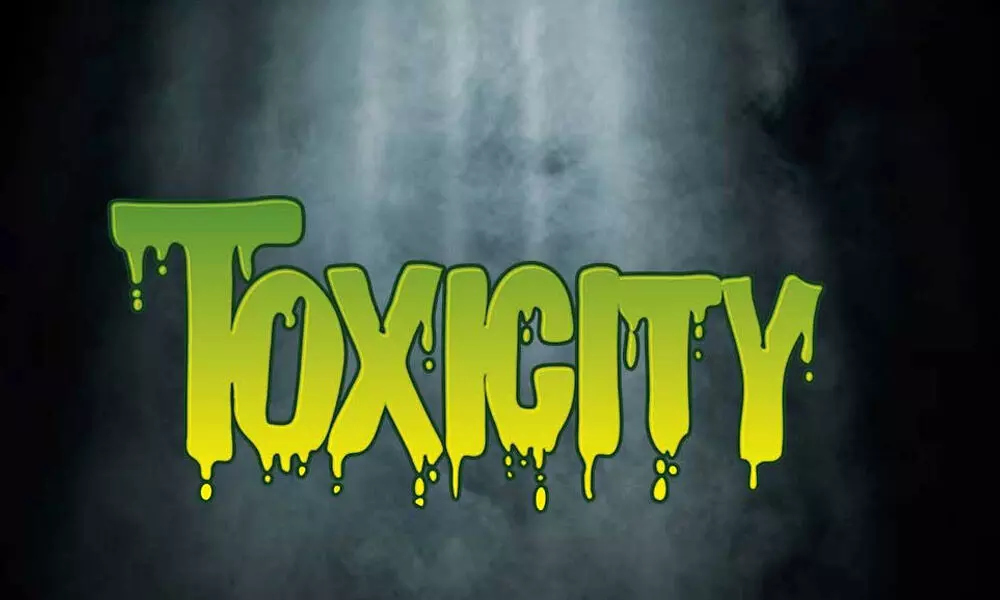Battling your way through toxicity

Battling your way through toxicity
Most discernible thing about toxic people is their self-absorption and disregard for others
As we navigate through our social lives, we inevitably encounter difficulties because of unfavourable interactions with people. Things become complicated when we happen to be in long-term equations with the same set of people and when rough patches get particularly frequent, it might be a good idea to ask-- are there toxic people in my life? While all of us should aspire to kindness, generosity and tolerance, some people and relationships are best evaded, to save one's time and effort.
To use a scientific metaphor, the toxicity of a substance depends on three factors: its chemical structure, the extent to which the substance is absorbed by the body, and the body's ability to detoxify the substance, or change it into less toxic substances and eliminate it from the body. In today's rat race, all of us go through difficult times and have the potential to be toxic. The difference lies in whether we choose to absorb toxicity or stray away from it and process our emotions or let them disfavourably take control of us.
Toxic people remain unaware of the negative impact they cause, and that, despite all factors which may make them act in those ways, is an irresponsible position to take. While we all go through trouble, draining other people of their energies and resources, and making them uncomfortable is immature behaviour that does good to nobody.
Dealing with toxic people have substantial and immediate consequences. Forbes, in a 2014 article reports that research from the Department of Biological and Clinical Psychology at Friedrich Schiller University in Germany found that exposure to stimuli, which cause strong negative emotions - the kind of exposure you get when you deal with toxic people - caused subjects' brains to have an enormous stress response.
Stress, as is known to everyone, is a detriment to well-being with physical and emotional hazards. Concerning yourself with toxicity, without securing yourself, is also harmful and unfair to your dignity. The question to ask then is, how do we identify toxicity and then deal with it to evade unpleasant circumstances?
One of the first discernible things about toxic people is their self-absorption and disregard for others. In a profoundly self-centred exercise, such people subordinate others' comforts to their requirements and disrespect their boundaries. They may not be attentive to what ruins your day, but will act entitled to ensure their peace through your labour and space. The other noteworthy kind of toxic people are the ones who create drama out of the least dramatic of situations. A request to get something on their way to your place could be impetus for drama, as could be a polite conversation about boundaries. People like these cover up their immaturity with drama to escape accountability and leave a bitter impression in its aftermath.
Toxicity is also linked to other negative traits, most notably, jealousy and irrationality. Jealous friends and colleagues can consistently make you feel guilty for your success or for keeping your life in order, or for simply exercising your freedom. They loathe themselves and what they perceive to be their inadequacies or limits and consequently cannot tolerate the happiness and fulfilment of others.
The other kind of people, in their stark defiance of rationality shroud unacceptable behaviour in an apparently emotional response.
They do not want to reason and present themselves as emotionally driven to stake claim on a space where they can take all liberties and arrogantly crush the comforts of other people with their articulation. There can be many other permutations and combinations of these traits, but toxic people, on the whole, are harmfully self-involved, irrational and have not made their peace with themselves.
However, what is the next step after identification? Some of these people could be our best and oldest of friends, the most important of colleagues or family members.
How do we negotiate our responsibilities towards them while taking care of ourselves? Brushing them away might lead to feelings of guilt and repressing yourself to suit them can be incredibly frustrating. The answer lies in doing exactly what toxic people do not do- reasoning with care.
While it is important to be socially connected, it is also necessary to keep your boundaries in place. All of us are unconditionally entitled to our personal time and space to process emotions and events. Keep people, especially, toxic people away from this space. On a related note, erect limits while interacting with toxic individuals. These limits could be linked to quantitatively and qualitatively restricting how much time you spend with them, and how often you share a context with them.
Distance yourself from people when it is necessary to rejuvenate, make excuses if you need to - you do not owe somebody a resolution for what they cannot resolve themselves. On the other hand, it is necessary to take the right people seriously. If we have annoying attention-seekers and complainers in this world, we also have the dearest of friends and family members who make our everyday struggles less taxing.
Instead of directing all your energy towards a toxic bond, invest in relationships that empower and emancipate you. Most significantly, it is essential to evade toxicity yourself. You wouldn't want to end up toxic, while trying to help others with their toxic patterns.
Thus, self-care, necessary isolation and self-affirmation are indubitably needed.
We also must reject social impositions such as toxic definitions of masculinity and fixed gender roles to be our most free selves and contribute effectively to the world we inhabit.
We all deserve the best of what experiences have to offer and letting toxicity and toxic people ruin that is a disservice to ourselves. So, unclog your mind and heart to let toxicity out and strategically evade toxic people.
(The author is Founder, Upsurge Global, and Senior Advisor, Telangana State Innovation Cell)










